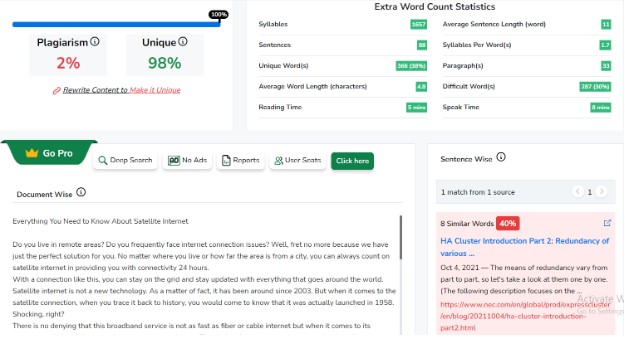When financial needs arise, exploring borrowing options can provide individuals and businesses with the necessary funds to meet their goals. Whether it’s for personal expenses, business ventures, or unexpected emergencies, understanding the various borrowing options available is crucial. In this article, we will delve into different types of loans, including traditional bank loans, lines of credit, personal loans, and even borrowing against life insurance policies. By examining these options, individuals can make informed decisions and find the most suitable borrowing solution for their specific needs.
Traditional Bank Loans: A Staple for Borrowing
Traditional bank loans are a well-established and widely-used method of borrowing money. These loans are typically offered by banks and financial institutions, and they come in various forms, such as personal loans, home equity loans, and business loans. Bank loans usually involve a formal application process, credit checks, and collateral requirements, depending on the loan type.
Bank loans offer fixed interest rates, structured repayment terms, and clear borrowing limits. They are suitable for significant expenses, long-term investments, or specific purposes such as purchasing a home or financing business operations. Bank loans provide borrowers with the stability of predictable monthly payments and established lending guidelines.
Lines of Credit: Flexibility and Convenience
Lines of credit offer borrowers more flexibility compared to traditional bank loans. They provide a revolving credit facility, allowing individuals or businesses to borrow funds up to a certain limit as needed. Lines of credit can be secured or unsecured, and they are often used for short-term or ongoing expenses, such as working capital, inventory purchases, or managing cash flow fluctuations.
With lines of credit, borrowers have access to funds whenever they need them, and they only pay interest on the amount borrowed. As the borrowed amount is repaid, the credit line replenishes, providing ongoing access to funds. This flexibility makes lines of credit an attractive option for businesses with variable cash flow needs or individuals who require access to funds on a periodic basis.
Personal Loans: Tailored Financing for Individuals
Personal loans are specifically designed for individuals seeking funds for personal expenses, such as home renovations, education, medical bills, or debt consolidation. Personal loans can be obtained from banks, credit unions, or online lenders, and they are typically unsecured, meaning no collateral is required.
These loans have fixed interest rates, set repayment terms, and clear borrowing limits based on the borrower’s creditworthiness. Personal loans provide individuals with a lump sum upfront, allowing them to address their financial needs and repay the loan over a specified period. Personal loans offer convenience, simplicity, and the ability to tailor loan amounts and repayment terms to suit individual circumstances.
Borrowing Against Life Insurance Policy: Utilizing Policy’s Cash Value
You may never have wondered how much can you borrow against your life insurance policy, but another option is tapping into the cash value of a life insurance policy. Permanent life insurance policies, such as whole life or universal life, accumulate cash value over time. Borrowing against this cash value allows policyholders to access funds while keeping the policy intact.
When borrowing against a life insurance policy, the policy’s cash value serves as collateral, and the loan amount is typically limited to a percentage of the cash value. The loan does not require a credit check, and the interest rates are often lower compared to other types of loans. Repayment terms can vary, and if the loan is not repaid, it may reduce the death benefit provided by the policy.
Borrowing against a life insurance policy can be beneficial for individuals who need quick access to funds without going through a lengthy application process or affecting their credit score. However, it’s essential to understand the terms and implications of borrowing against the policy, as it can impact the future benefits and coverage of the life insurance plan.
Exploring Alternative Borrowing Options
In addition to traditional bank loans, lines of credit, personal loans, and borrowing against life insurance policies, there are other alternative borrowing options available that cater to specific needs and situations. Let’s explore a few of them:
- Peer-to-Peer Lending: Peer-to-peer (P2P) lending platforms connect borrowers directly with individual investors. These platforms facilitate borrowing money from multiple lenders who contribute small amounts to fund the loan. P2P lending offers borrowers an alternative to traditional banking institutions, potentially providing more favorable interest rates and flexible terms.
- Credit Cards: Credit cards can be a convenient source of short-term borrowing. They offer revolving credit limits that can be used for everyday expenses, emergency needs, or making purchases. However, it’s important to use credit cards responsibly and pay off the balance in full each month to avoid high interest charges.
- Payday Loans: Payday loans are short-term, high-interest loans typically intended to cover immediate expenses until the borrower’s next payday. They provide quick access to cash, but borrowers should be cautious as these loans often come with exorbitant interest rates and fees. Payday loans should only be considered as a last resort.
- Crowdfunding: Crowdfunding platforms allow individuals or businesses to raise funds by receiving contributions from a large number of people. This method is commonly used for specific projects, charitable causes, or entrepreneurial ventures. Crowdfunding can be a viable option for those who have unique or innovative ideas but lack traditional financing options.
- Home Equity Loans or Lines of Credit: For homeowners, borrowing against the equity in their property can be an option. Home equity loans provide a lump sum borrowed against the value of the home, while home equity lines of credit offer revolving credit based on the available equity. These loans typically have lower interest rates due to the collateral of the property.
It’s important to note that each alternative borrowing option has its own characteristics, terms, and considerations. Borrowers should carefully assess the risks, costs, and repayment obligations associated with these options before proceeding.
Choosing the Right Borrowing Option for Your Needs
When faced with the need for borrowing money, individuals and businesses have a range of options to consider. Traditional bank loans, lines of credit, personal loans, borrowing against life insurance policies, and alternative borrowing options each have their own benefits, requirements, and implications.
Before making a decision, it’s crucial to evaluate your specific needs, financial situation, repayment capabilities, and long-term objectives. Consider factors such as interest rates, repayment terms, collateral requirements, and potential impacts on credit scores or insurance coverage.
Seeking advice from financial professionals or loan experts can provide valuable insights and help you make an informed decision. By choosing the right borrowing option that aligns with your circumstances and goals, you can access the necessary funds, manage your financial obligations responsibly, and achieve your objectives with confidence.





